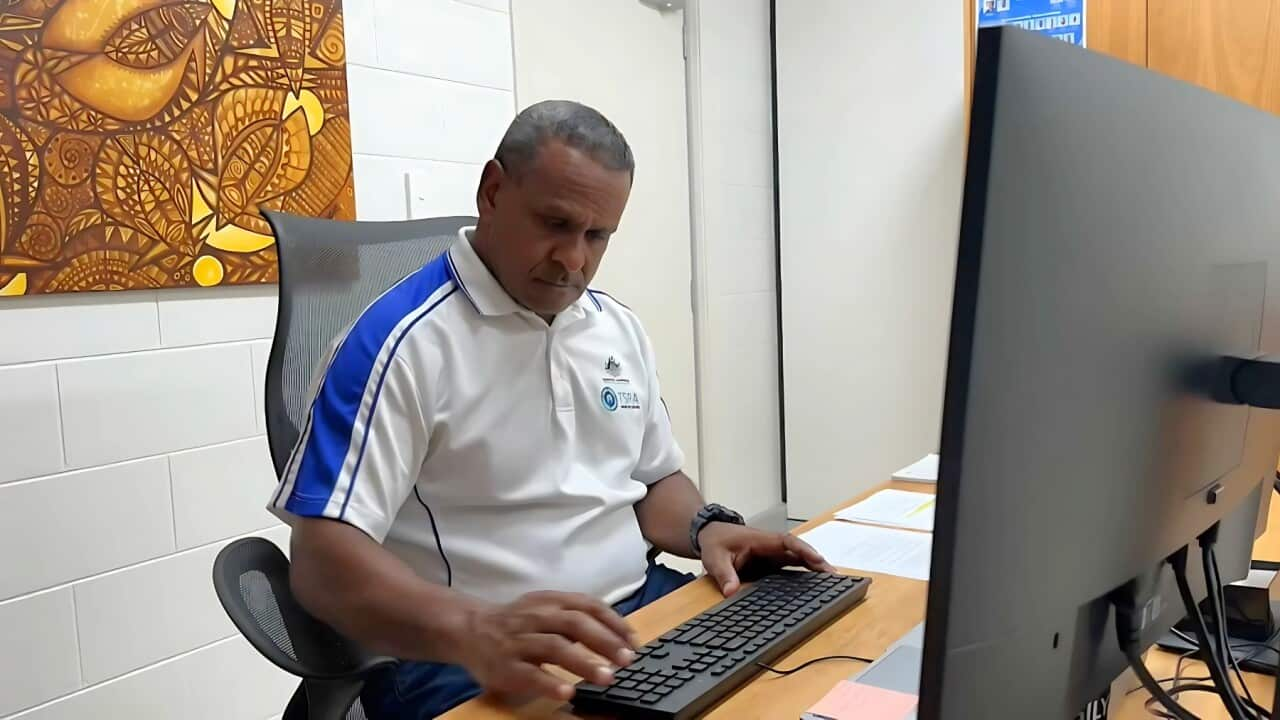TRANSCRIPT
New research has found Australia is still doing a poor job of recognising the international qualifications of migrants, despite crippling skills shortages in the economy.
A report, from the Committee for Economic Development of Australia [[CEDA]], [[see-duh]] says weaker English language skills and lack of skills recognition - along with discrimination - is stopping Australia from making the most of what migrants have to offer in the workplace.
Andrew Barker is a senior economist with CEDA.
"Failure to properly recognise overseas skills is a really important part of the story. So we find that in Australia only around 30 per cent of migrant qualifications are formally recognised and that's low by international comparison. And if we give a specific example, for example, for nurses, it's much easier and faster and cheaper to have their qualifications recognised in the UK than it is in Australia. So we're in a competition for talent and it's easier for that talent to go to the UK than Australia. And because we're not properly recognising skills, that means migrants are more often working in jobs below their skill level."
The report recommends increased access to English-language training and better qualification and work experience recognition, as well as initiatives to tackle discrimination and prejudice.
Mr Barker says recent migrants earn significantly less than Australian-born workers - something which has worsened over time.
Too many migrants also work in jobs beneath their skill level as a result.
Bill Mitchell is Professor of Economics and Director of the Centre of Full Employment and at the University of Newcastle in New South Wales.
He says there needs to be more flexibility in how overseas qualifications are recognised and assessed by professional bodies in Australia.
"We've got this big pool of migrants who are here for whatever reason, often working in manual trades or even just unskilled work when they have got university qualifications or advanced trade qualifications. So that's something Australia should address. I mean, there's a cartel of professional organisations in Australia that are the watchdogs over all of this, and they guard their terrain very carefully. And I think to the result that Australia in general, the population misses out on those skills. So that to me is something that should be addressed."
The report states that ensuring migrants can use their skills within their first few years in Australia is crucial to addressing ongoing skill shortages across the economy.
Migrants who have been in Australia for up to six years earn about 10 per cent less on average than Australian-born workers.
The report estimates $4 billion in foregone wages would be unlocked each year if migrants earned comparable salaries to their Australian-born counterparts.
Mr Barker says there are two main issues related to training that could be improved.
"The first is around qualifications recognition, where we say it's really important for occupational regulators where they find that someone doesn't meet the requirements to practice in Australia, we need an if not why not policy and identify bridging or top ups for people to meet those skill levels. And then specifically on English language training. English language training in Australia has historically been focused largely on humanitarian migrants who clearly need that support, but only about 15 per cent of skilled migrants access that support for improving their English language ability. And as we're getting more and more migrants from a broader range of countries, we think it's unreasonable for skilled migrants to be able to develop their English language training to the level needed to work in high skilled occupations themselves, particularly while they're starting a new job."
Catherine Scarth, the Chief Executive Officer of English language provider AMES [[aims]] says many skilled migrants may have high proficiency in one area of English and not so much in another.
"It's certainly one of the key barriers. For example. Some of our experience has been with engineers, particularly that it's the type of written English that sometimes is the issue. So not necessarily oral skills, but some of the very technical language skills. So it's probably thinking about how do we boost some of the more advanced English training for skilled migrants."
Female migrants with a post-graduate degree had the worst outcomes, earning almost a third less than Australian-born women with similar education levels.
Catherine Scarth says as well as the usual factors affecting men, women generally have more caring responsibilities affecting how quickly they enter the workforce and at what level.
Women are also more likely to be secondary applicants - that is entering the country with spouses rather than as independent applicants.
"I think the secondary applicants don't necessarily have to have that level of English to get their visa. And so English for them could be a bigger barrier, although they do have access to the Commonwealth program, the adult migrant English program, so that's terrific. They're often likely to be in a position where they have young children and so they're not looking to re-enter the workforce for a few years. And that means then that they have a bigger gap in their skills and work experience. And so they're starting from much further behind."
Ms Scarth would like to see more targeted orientation program for skilled migrants when they enter the country or even prior to arrival.
"For many people coming from very different parts of the globe, the way in which employers might interview people is very different here. The types of resumes and those sorts of things. It would be very cost effective for us to provide that as soon as people arrive and potentially before they arrive via an online program. A lot of the skilled migrants we talk to have already spent thousands in various agencies, recruitment agencies and so on. And our feeling would be that they would be happy to pay for something like that. And we know that that's pretty cost effective."
Professor Bill Mitchell says he would also like to see more investment from business and government in training up migrants already in Australia as well as other Australians wanting to train in key areas.
"I'm on the public record for many years now, arguing that case that let's get people that already live here. And I'm not discriminating here between people who've come from other countries or people who are born here, but people who are already residents. We should be maximising their potential with opportunities. And if we consider them to be less skilled, then we've got to revitalise our training and education systems. And I mean, what governments have been doing for many years has been squeezing the TAFE sector so that it's much less productive than it could be."













